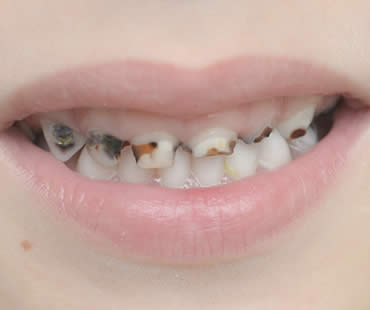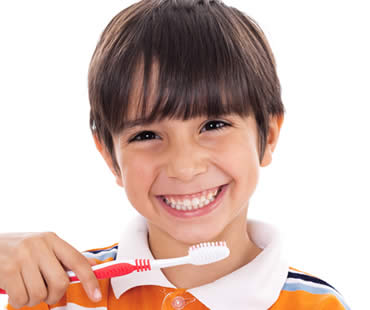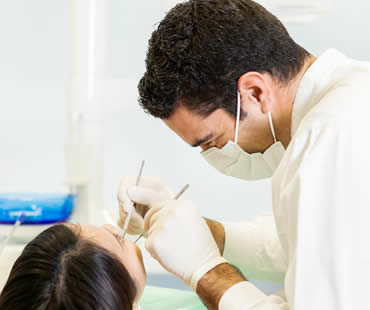
by Dr. Adkins | Jun 7, 2019 | Blog, Dental Information, Dental Topics 2
Once you’re an adult, you don’t have to worry about cavities anymore. Right? Wrong! It’s true that you should have mastered oral hygiene techniques, but there are different factors that can contribute to cavities that weren’t a big issue during childhood. What are some of the things that put you at risk for cavities once you’ve reached adulthood, and what can you do about them?
Diet
Often your diet is worse as an adult without even realizing it, and what you eat and drink directly affects your teeth and gums. Sugar is the biggest offender and all types of sugar counts, not just the obvious candy or sodas. Limit your consumption of juices, milk, crackers, sweetened coffee, fruits, and vitamin or energy drinks.
Grazing
Many people tend to “graze” on foods and drinks all day long. If you snack frequently, you’re giving bacteria a constant supply of sugars to mix with and damage your mouth. Even though it’s tempting to sip on coffee or soda all morning, it’s better to drink it in one sitting. Also consider using a straw to avoid your teeth completely.
Receding gums
If your gums pull away from your teeth, your tooth roots can be exposed to plaque. Older patients with gingivitis, or gum disease, are more likely to form cavities. If the roots of your teeth are uncovered, you are more susceptible to plaque buildup and tooth decay.
Previous fillings
Fillings you received earlier in life can contribute to adult cavities. The filling may weaken with time, allowing bacteria into any cracks. Your dentist will check existing fillings for wear and replace them if needed.
Medical conditions
People with lower saliva flow due to various illnesses are at higher risk of cavities. Cancer patients who have undergone chemotherapy or radiation are at more risk, as are smokers. People with limited manual dexterity may be unable to clean their teeth sufficiently.
Ways to decrease your risk
Brush with a fluoride toothpaste after meals, floss daily, and rinse with a fluoride mouthwash. See your dentist twice a year, and also inquire about fluoride treatments.
We look forward to seeing you in our McDonough dental office

by Dr. Adkins | May 24, 2019 | Blog, Dental Topics 2, Kids Dentistry
Teaching your kids good dental habits and making sure they get dental care are some of the most important things you can do for them. Guidelines for helping your child improve their oral health depend upon their ages. Here are some oral health tips for various stages of childhood.
Infants (up to 2 years):
It’s never too early to begin oral care! Clean your baby’s gums with a damp cloth after feedings to remove bacteria. Once the first tooth erupts, use a soft toothbrush for babies to gently brush the teeth and gums. Use a pea-sized dab of toothpaste and brush at least twice a day. Around the first birthday, begin taking your child to the dentist for regular checkups.
Preschoolers (2-4 years):
This age group has the highest incidence of tooth decay, because most preschoolers love sugary foods but may not love brushing their teeth. Brush your child’s teeth yourself until they are old enough to do it well, but continue supervising the process to make sure all areas are clean. Consider flavored or character fluoride toothpastes if it encourages your child to brush. Also, limit the amount of sugary foods and drinks your child consumes.
Young elementary (5-7 years):
As more and more teeth grow in, your child needs to brush carefully with fluoride toothpaste. Make sure all areas of your child’s mouth are being reached, and help your child use dental floss to clean between teeth and gums. Continue helping your child make healthy diet choices.
Older kids (over 8 years):
Most children should be able to brush on their own by age 8, but performing spot checks is a good idea to make sure they are doing a good job. Teach your child to brush after meals, especially when eating sugary or sticky foods, and emphasize the importance of flossing every day. Continue taking your child for regular dental checkups every six months, which will help create a life-long habit of good oral care.
We treat patients from McDonough and the surrounding area

by Dr. Adkins | May 17, 2019 | Blog, Dental Topics 2, Kids Dentistry
Kids don’t always play it safe or make the best decisions when it comes to protecting their teeth. Tooth decay and mouth injuries are just a couple of things parents must worry about for their kids, whether it’s the elementary school or college years. Here are some simple ways that parents can teach their kids to protect their teeth.
Limit sports and energy drinks.
Sports and energy drinks are both heavily marketed toward today’s youth. It is true that sports drinks help replace electrolytes during exercise, but many people drink them too much or outside the exercise realm. Experts have deemed sports drinks to be unnecessary in the lunchroom or as a snack on the playground. The high acid levels in these drinks can erode tooth enamel, with energy drinks determined to cause twice as much damage. It is recommended to save sports drinks for very strenuous activities, and instead stick with water for hydration and refreshment without the negative effects.
Insist upon mouthguards.
Parents should provide mouthguards for kids in nearly any sport, even if it isn’t considered mandatory by the school or team. Mouthguards can prevent chips, fractures, or knockouts of teeth, as well as protect the soft tissues of the mouth. According to research estimates, 3 million teeth were knocked out in youth sports in 2011. Dentists suggest that athletes who don’t wear mouthguards are 60 times more likely to sustain oral injury. Inexpensive basic mouthguards or the boil-and-bite variety are available at sporting goods stores, or customized mouthguards can be purchased through your dentist.
Say no to oral piercings.
Although it applies primarily to teenagers and older, the Academy of General Dentistry advises against oral piercing for active people. Those with piercings should remove them before participating in sports, because puncture wounds can lead to infections related to increased blood flow and breathing rates during exercise. If your child is considering and oral piercing, make sure you discuss the risks and need for removal during physical activity.
Our dental office is located in McDonough

by Dr. Adkins | May 10, 2019 | Blog, Dental Topics 2, Kids Dentistry
Kids will be kids, and emergencies happen that can affect the mouth. To avoid long-term damage, extensive pain, or unsightly results, it’s important to know what to do in a dental emergency. Let’s learn what you should do when your child has one of the following common oral problems.
Severe toothache:
Look for food stuck between the teeth, and if so try to dislodge it with floss. Clean the affected tooth and rinse the mouth well with warm water. Swollen gums may indicate an infection, which requires a dental visit. Facial swelling can be relieved with cold compresses, but if it accompanies severe pain you should take your child to the dentist or emergency room. Try giving over-the-counter pain reliever, but don’t place the medication directly on the gum or tooth.
Chipped tooth:
If your child chips a tooth, contact your dentist immediately. Fast action can help save the tooth, reduce the risk of infection, and prevent extensive procedures. Have your child rinse with cold water. If you can find the tooth fragment, take it to the dentist in case it can be bonded back in place.
Knocked out tooth:
The first thing to do is locate the missing tooth. Hold it by the crown instead of the root, and rinse it gently. Try replacing the tooth back in the socket, and have your child bite a piece of gauze or cloth to hold it in place until you get to the dentist. If you can’t insert it, place it in a cup of cold milk to take with you. Time is important in saving a displaced tooth, so see your child’s dentist immediately.
Cut lip, tongue, or cheek:
Ensure your child’s teeth are undamaged, and apply firm pressure with a moist washcloth or teabag to the bleeding area. If it doesn’t stop in fifteen minutes, call your child’s dentist or head to the emergency room. If the tongue is bleeding, there’s not much you can do except wait to see if it stops bleeding on its own within fifteen minutes. If not, visit the dentist or emergency room.
Schedule your appointment at our McDonough dental office

by Dr. Adkins | Apr 26, 2019 | Blog, Dental Topics 2, Oral Surgery
Wisdom teeth are the last adult teeth to erupt into the mouth, generally emerging between the ages of seventeen and twenty-one. They are the third set of molars and are in pairs: two each on the top and bottom arch of teeth. While some patients don’t have wisdom teeth, most do. Many of those who do have them don’t have enough room for those teeth to erupt fully, causing them to be wedged under the back of another tooth, impacted in the gum.
Impacted wisdom teeth are very difficult to clean, and can negatively affect the surrounding teeth. They are highly vulnerable to disease and decay and may lead to tooth pain and damage to adjacent teeth. For these and other reasons, a dentist may recommend that the teeth be extracted through oral surgery as soon as necessary to prevent any problems.
Extraction of wisdom teeth is typically an outpatient procedure done in an oral surgeon’s office. A healthy patient can proceed with a typical surgery, but if any infection is detected, the surgery can’t move forward until the infection is cleared up through the use of a full course of antibiotics. Once the surgery is moving forward, the surgeon’s team will administer some form of anesthesia to numb the area surrounding the tooth or to possibly sedate the patient through IV sedation dentistry.
After the anesthesia has fully taken effect, the surgeon makes an incision to open the gum and to remove any bone that is blocking the tooth from extraction. The tissue connecting the bone to the tooth will be separated and the tooth will be removed. In some cases, the surgeon will have to break the tooth into smaller pieces to make it easier to remove. After thoroughly cleaning the area and removing any remaining debris, the incision will be closed, stitched and packed with sterile cotton gauze to staunch any bleeding.
The surgeon will provide aftercare instructions. Patients should follow these instructions to the letter in order to ensure the best and fastest healing of the surgical site.
If you live in the McDonough area contact us today

by Dr. Adkins | Apr 19, 2019 | Blog, Dental Topics 2, Teeth Whitening
Teeth whitening is the most popular cosmetic procedure that dentists perform today. It can have a dramatic effect on your smile at a smaller cost than other cosmetic procedures. You can whiten your teeth yourself using at-home techniques, but often professional whitening with your dentist’s help achieves the fastest and most effective results. Let’s examine the whitening options provided by most dentists to help you evaluate what might work for you.
Whitening at your dentist’s office:
The dentist applies a whitening product to your teeth containing higher percentages of hydrogen peroxide than what is available in at-home kits. Heat or light may be used also. This technique produces quick, uniform results, but it does sometimes cause temporary gum irritation or tooth sensitivity. This method is expensive, ranging between $500 to $1,200.
Home whitening supervised by your dentist:
A customized mouthpiece will be created by your dentist for you to fill at home with whitening gel, which contains a lower strength of hydrogen peroxide then the in-office gel. You wear the mouthpiece at home for several hours each day, and your dentist supervises the whitening with regular checkups. This method is convenient and less expensive at $300 to $500, but it produces slower results than in-office methods.
Repeating the process:
Whichever type of teeth whitening technique you might choose, remember that it isn’t a permanent repair to your teeth. You will need to repeat the process every year or two. The length of time between treatments will increase if you don’t smoke and avoid foods that are known to stain your teeth, such as coffee and red wine.
If you live in the McDonough area contact us today








 (470) 665-5292
(470) 665-5292  E-Mail Us
E-Mail Us 
